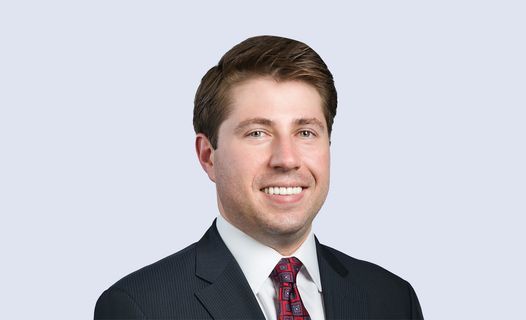The federal appeals court that has jurisdiction over New York employers recently issued a decision holding that a plaintiff must plausibly allege “willfulness” to secure the benefit of the longer three-year limitations period for willful violations of the Fair Labor Standards Act (FLSA). The decision means that, at the pleadings stage, a plaintiff cannot merely pepper their complaint with the word “willfulness” to obtain the exception – they must actually allege facts that create a plausible inference of willful violation of the statute. The April 27 decision from the 2nd Circuit Court of Appeals in Whiteside v. Hover-Davis, Inc., Universal Instruments Corporation widens a split among the appeals courts around the country. What do employers need to know about this helpful decision?
Background
Mark Whiteside worked as an – indisputably – exempt employee until he temporarily transferred to a – indisputably – non-exempt position. During the period he temporarily worked as a non-exempt employee, his pay was not changed and he was still treated as a salaried exempt employee. Whiteside transferred back to his exempt position in 2016.
In 2018, Whiteside filed a complaint in the Western District of New York (WDNY) alleging, in part, that his employer willfully violated the FLSA when it failed to pay him overtime wages during the time he worked as a non-exempt employee but was paid as an exempt employee. The statute of limitations period for ordinary FLSA violations is two years. However, in instances where an employer willfully violated the FLSA, a cause of action may be brought within three years of the violation. Willful conduct exists where the employer knew or showed reckless disregard for its violation of the FLSA.
In this case, Whiteside’s claim would have been time-barred by the FLSA’s standard two-year statute of limitations – but would have been timely if the violation was willful. The WDNY granted the defendants’ motion to dismiss, ruling the employee’s FLSA claim time-barred due to the applicable two-year limitations period. The WDNY explained that the employee’s conclusory statement that his employer acted with reckless disregard of its obligations under the statute, without additional facts plausibly supportive of his allegation, was insufficient to defeat a motion to dismiss. The WDNY reasoned that if the employee’s conclusory assertions were ruled sufficient at the pleading stage, “it would effectively eliminate the willfulness requirement from the statute and make all FLSA claims subject to the three-year limitations period.”
2nd Circuit Confirms that Plausible Allegations of Willfulness are Required
Whiteside filed an appeal, arguing that the WDNY had erred when it ruled the two-year statute of limitations applied to his claim and that the three-year statute of limitations should apply. Specifically, he argued that: (1) conclusory allegations of willfulness, without specific factual allegations, are sufficient for the three-year statute of limitations to apply at the pleading stage; and (2) even if conclusory allegations are not sufficient, Plaintiff pleaded facts sufficient to give rise to an inference of willfulness. The 2nd Circuit rejected both arguments and upheld the WDNY’s decision.
- A Plaintiff Must Allege Facts That Give Rise To A Plausible Inference Of A Willful Violation
In rejecting Whiteside’s argument that he did not have to plead facts showing willfulness, the 2nd Circuit held that the “mere allegation of willfulness is insufficient to allow an FLSA plaintiff to obtain the benefit of the three-year exception at the pleadings stage.” The Court noted that the U.S. Supreme Court has recently emphasized that claims must rest on well-pleaded factual allegations. The Court emphasized that, in FLSA cases, a plaintiff has the ultimate burden to prove a willful violation as an independent element of an FLSA claim. Therefore, the burden of persuasion and pleading should match, and a plaintiff must plausibly plead facts supportive of their claim of willfulness. The 2nd Circuit reasoned that since it should not accept as true legal conclusions, including ones about a defendant's state of mind, it did not have to accept as true conclusory allegations of a willful violation of the FLSA.
Importantly, in a pivotal 1988 case, the Supreme Court recognized the law inherently created a “substantive distinction” between ordinary and willful violations of the FLSA. The extension of the statute of limitations for willful violations was an exception to the ordinary limitations period and acts as a punitive measure for employers who are more culpable than those who are only negligent. As the Supreme Court explained, the “two-tiered statute of limitations makes it obvious that Congress intended to draw a significant distinction between ordinary violations and willful violations of the statute.” For the willfulness standard to apply, it is not enough to allege the employer “knew FLSA was in the picture” but “that the employer knew or showed reckless disregard for the matter of whether its conduct was prohibited by the statute."
The determination whether a defendant willfully violated FLSA is a question of both law and fact for which the plaintiff still carries the burden of proof. Since the three-year statute of limitations is a punitive exception to the statute of limitations period for FLSA claims, the 2nd Circuit reasoned that requiring plaintiffs to plausibly plead willfulness “respects the distinction between ordinary FLSA claims and claims for willful violations and prevents blurring that distinction.” - Allegations Did Not Create Inference Of Willful Violation
On the merits, the 2nd Circuit held Whiteside had not pleaded facts that plausibly gave rise to an inference of willfulness. A claim is facially plausible “when the plaintiff pleads factual content that allows the court to draw the reasonable inference that the defendant is liable for the misconduct alleged.” The Court noted that in the four iterations of the employee’s complaint, he failed to allege: (1) whether his salary was adjusted to reflect his non-exempt status, (2) whether he complained of his non-exempt status and lack of overtime pay, (3) any details about who asked him to change his roles, (4) that his managers said anything acknowledging the alleged violation, or (5) facts showing his manager’s awareness of the violation. Moreover, the factual allegations pleaded in the Third Amended Complaint did not “permit a plausible inference that Defendants willfully violated the statute” or raise a reasonable inference that discovery would reveal evidence of willfulness. Rather, the asserted factual allegations only permitted an inference that Whiteside’s employer negligently failed to reclassify him as a non-exempt employee, which, without more, could not support an allegation of a willful violation under the FLSA. The pleaded facts, which were merely consistent with Whiteside’s allegation of his employer’s purported liability, offered no more than a “sheer possibility” that the employer willfully violated the FLSA. Accordingly, his factual allegations “stopped short of the line between possibility and plausibility,” and failed to demonstrate his entitlement to the three-year statute of limitations exception of the FLSA.
Interestingly, the Court acknowledged that “an FLSA plaintiff may offer circumstantial allegations sufficient to permit a plausible inference of willfulness at the pleadings stage.” However, it held that the circumstantial allegations offered in this specific case did not cross the line from “conceivable to plausible.”
What This Means For Employers
In holding that a plaintiff must plausibly allege willfulness, the 2nd Circuit sided with the 6th Circuit and against the 10th Circuit, widening a circuit court split on the “applicable pleading requirements in cases in which a plaintiff alleges willfulness to obtain the benefit of an extended limitations period.” The 6th Circuit (having authority over federal courts in Ohio, Tennessee, Michigan, and Kentucky) has held, in a ruling dealing with the “structurally analogous Family Medical Leave Act,” that conclusory assertions of willful conduct are not enough to invoke the three-year statute of limitations exception. Meanwhile, the 10th Circuit (Colorado, Kansas, New Mexico, Oklahoma, Utah, Wyoming) ruled that mere allegations of willfulness are sufficient at the pleading stage to impose the three-year statute of limitations period. Given the expanding Circuit split, it is possible this question will ultimately be decided by the Supreme Court.
While the split between circuit courts has expanded with this decision, employers facing suit in the 2nd Circuit no longer (for the moment) need to worry about different judicial interpretations of the statute of limitations period for allegedly willful violations of FLSA. The 2nd Circuit has ruled a plaintiff must plead facts that raise a plausible inference of a willful violation to be entitled to the punitive three-year statute of limitations exception.
When deciding whether to move to dismiss a complaint on this point, you should pay attention to whether the complaint pleads facts sufficient to impose this heightened liability threshold. As indicated by its decision in Whitehead, the 2nd Circuit will not be persuaded by factual allegations that permit merely an inference of a “possible” rather than “plausible” willful violation of the FLSA. The Court instead expects a plaintiff to plead facts that will “raise a reasonable expectation that discovery will reveal evidence of the wrongdoing alleged, even if it strikes a savvy judge that actual proof of those facts is improbable.” Accordingly, you should look for factual allegations in the complaint that provide some indication of employer awareness or disregard of wrongdoing through either explicit acknowledgement or circumstantial allegations (such as an employer’s failure to remedy its conduct after an employee raises the issue of misclassification). Lacking in such facts, and where, as in Whitehead, a plaintiff pleads facts merely showing negligence without additional, plausible factual allegations giving rise to an inference of willful misconduct, a plaintiff is unlikely to be entitled to the punitive three-year statute of limitations exception to the FLSA. Accordingly, in such circumstances you should consider moving to dismiss the claim.
Conclusion
We will continue to monitor developments impacting New York employers, so make sure you are subscribed to Fisher Phillips’ Insight System to get the most up-to-date information directly to your inbox. If you have questions about FLSA and whether your policies comply with workplace and other applicable laws, contact your Fisher Phillips attorney or any attorney in our New York City office.



